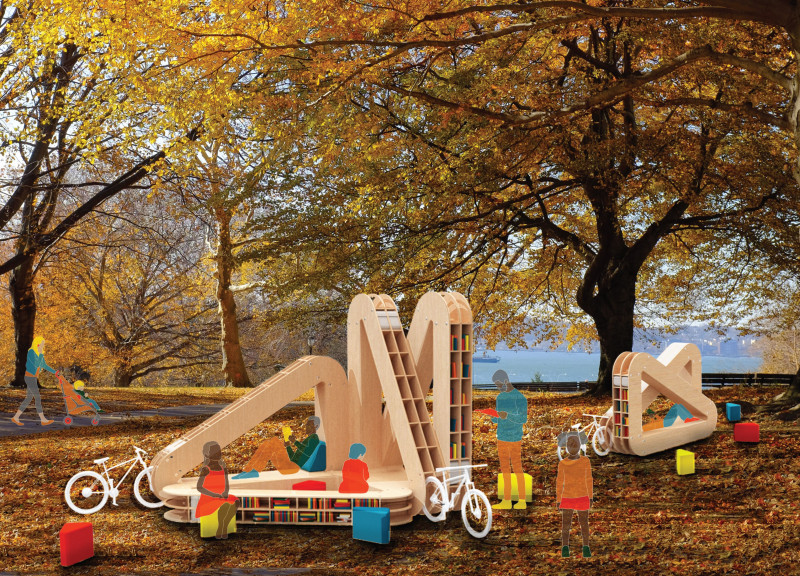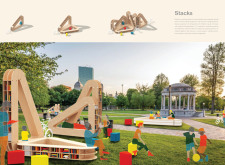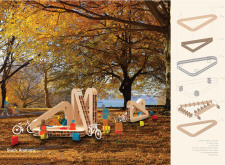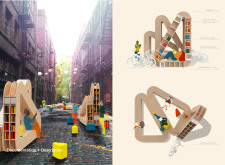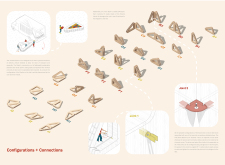5 key facts about this project
Stacks is a modular system designed for user-configurable reading rooms, featuring a unique triangular shape with dimensions of 30°-60°-90°. Set in urban environments, it aims to create accessible spaces that support reading and communal interaction. With a strong focus on functionality and flexibility, the design encourages users to engage with literature in a comfortable and adaptable setting.
Design Concept
The basic unit of Stacks includes 36 bookshelves, allowing for organized storage of books and providing easy access for users. It also offers space for four bicycles, reflecting a commitment to supporting alternative modes of transport. The presence of 16 coated foam cushions as seating options promotes comfort and invites social interactions among readers, making it a conducive environment for both individuals and groups.
Modularity and Adaptability
What distinguishes Stacks is its modular approach. Users can couple and reconfigure units to create a variety of reading environments suited to different preferences and needs. This adaptability allows for a mixture of solitary use and group gatherings, fostering a sense of community around reading and learning.
Construction and Materiality
The design prioritizes ease of transport and assembly. Stacks is crafted to fit standard delivery vehicle dimensions, which simplifies the delivery process and installation. Built from lightweight sustainable plywood, the structure not only supports environmental considerations but also enhances its durability for long-term use.
Functional Details
The assembly system employs standard bolts, making the construction straightforward and requiring minimal tools. Stacks features two types of joints: one that allows units to be stacked next to each other and another that connects them at a braced corner. This design choice ensures that the configuration remains stable and functional, even as users change the layout to suit their needs and preferences.


